|
Discover expert tips on how to pack a bed frame and mattress for moving, ensuring safe transport and easy reassembly. Moving to a new home is an adventure, a fresh start that often comes with the challenge of transporting your belongings safely, especially bulky items like your bed. Among these, the bed frame and mattress are particularly cumbersome yet crucial to move with care. A systematic approach is essential to effectively pack a bed frame and mattress for moving. This comprehensive guide will provide detailed steps to ensure everything is moved without damage, ensuring you can have a good night’s sleep in your new home. Pack a Bed Frame and Mattress for Moving: Get the Necessary Materials If you want to properly pack a bed frame and mattress for moving, it’s important to have the right materials on hand. A durable mattress bag or cover is a must-have to shield it from dirt, moisture, and damage. For the bed frame, bubble wrap or moving blankets offer excellent protection against scratches and dents. Packing tape and scissors are essential for securing these wrappings, and a toolset is necessary for disassembling your bed frame. Lastly, a marker is useful for labeling parts, which simplifies reassembly. Investing time in gathering these materials will make your packing process efficient and stress-free. Packing the Mattress Cleaning the Mattress A clean start in your new home begins with a clean mattress. Start by vacuuming thoroughly to remove dust, hair, and other debris. Use a mild detergent and a damp cloth for spot cleaning if there are any stains. Be careful not to soak the mattress, as moisture can lead to mold and mildew. Allow it to air dry completely, which might take a few hours. A clean and dry mattress ensures that when you unpack, you're greeted with a fresh, welcoming bed to rest on after a long day of moving. Wrapping the Mattress Once it is clean and dry, it's time to wrap it for protection. A specialized mattress bag or cover is designed to offer a barrier against dirt, dust, and moisture during transport. Slide the mattress into the bag and seal the open end with packing tape. Make sure the entire thing is enclosed and the bag is secured with no gaps. Clearly label the package with your name and the destination room in your new home. This protects your mattress and simplifies the relocation process, ensuring the movers know exactly where to place it. Disassembling the Bed Frame Step-by-Step Guide The bed frame, often the centerpiece of your bedroom, requires careful disassembly. Start by removing all bedding and the mattress. Then, systematically take apart the frame. Begin with larger components like the headboard and footboard, then continue to the slats and side rails. Use the appropriate tools to loosen and remove screws and bolts. Keep a close eye on all the hardware - losing a single screw can be troublesome during reassembly. A handy tip is to use small plastic bags to store screws and label them according to the part they belong to. Tips for Easy Reassembly Take detailed photos of everything before and during disassembly to facilitate reassembly in your new home. These photos can serve as a reference, making it easier to put everything back together correctly. Labeling each part of the frame can also be immensely helpful. Use stickers or masking tape to mark each piece, corresponding to the photos you've taken. This simple step can save you a lot of time and confusion, ensuring you can quickly get some sleep and rest after a long day of moving. Pack the Bed Frame Protecting Components The bed frame, with its different components, needs to be packed securely to avoid damage. Wrap each part of the frame with bubble wrap or moving blankets. These materials provide cushioning and protect against scratches, dents, and other damages during transit. Pay special attention to corners and protruding parts, as they are more susceptible to damage. Secure the wrapping with packing tape. If you have any loose parts like knobs or decorative elements, remove them and pack them separately to prevent loss or damage. Compact Packing Strategies When packing the disassembled bed frame, it's important to be mindful of space. Arrange the parts in a way that they take up the least amount of space possible without compromising their safety. Larger parts like headboards and footboards can be laid flat, while smaller pieces can be nestled in between. Ensure that all parts are securely wrapped and don’t move around. This careful packing saves space in the moving truck and minimizes the risk of damage during the move. Pack the Bed Frame and Mattress for Moving: Loading and Transporting Loading Tips Putting your mattress and bed frame into the moving truck requires strategy and careful planning, especially if your move is more complex, like a move across the border. For instance, when moving internationally, ensuring that your items are well-protected and securely placed becomes even more crucial due to the longer transit times and additional handling. The mattress should be placed flat against one of the truck's walls to save space and prevent it from bending or folding, which can damage its structure. Similarly, the frame parts should be carefully positioned to avoid shifting during the journey. Using moving straps or ropes to secure them in place is wise, as this ensures that your bed remains stationary and safe, no matter the distance or destination of your move. Unloading and Storage Upon arriving at your new home, unload everything carefully. Store them in a dry, clean area if they can't be reassembled immediately. Also, avoid placing heavy items on top of the mattress, as this can cause permanent damage. Keep the bed frame parts together to ensure easy access for reassembly. Proper unloading and storage are crucial in preserving the condition of your bed until it's ready to be set up in your new space. Conclusion
Moving your bed frame and mattress can be smooth and stress-free with the right preparation and care. This guide on how to pack a bed frame and mattress for moving has walked you through each step to ensure everything arrives in perfect condition, whether you are moving internationally or locally. Each stage protects these essential items, from gathering materials to the final setup. With patience and organization, you'll find that this task can be a simple and straightforward part of relocating to your new home. Photos via: Pexels Pexels Unsplash Unsplash Discover the pros and cons of long-term and short-term leases for renting a home as a digital nomad. Make an informed decision today! Embarking on the thrilling journey of renting a home as a digital nomad opens up a world of possibilities. As the global trend of digital nomadism continues to soar, finding suitable accommodation becomes paramount. This article delves into the intriguing debate between long-term and short-term leases, offering insights and guidance for digital nomads seeking their ideal abode. Whether you crave stability and predictability or desire flexibility and variety, we explore the pros and cons of each option. So, join us as we navigate this exciting decision-making process, empowering you to create your perfect home base as a digital nomad. Understanding Digital Nomad Lifestyle Embracing the digital nomad lifestyle grants individuals the freedom to work remotely while exploring the world. With flexibility as its cornerstone, this way of life offers endless personal and professional growth opportunities. The benefits are abundant: escape the monotony of a traditional office, immerse yourself in diverse cultures, and cultivate a balanced work-life dynamic. However, challenges arise when finding suitable accommodations that cater to this unique lifestyle. By understanding the intricacies of the digital nomad lifestyle, you'll be empowered to navigate the challenges and make informed decisions for finding your ideal accommodations. Long-Term Leases: Pros and Cons Long-term leases offer certain advantages and disadvantages for renting a home as a digital nomad. On the positive side, long-term leases provide stability and predictability, allowing you to establish a home base while exploring new destinations. They often come with lower rental rates, especially for extended stays, helping to manage your budget effectively. Having a fixed address can be beneficial for receiving mail, setting up utilities, and even registering for local services. However, the lack of flexibility can be a drawback, as digital nomads thrive on the ability to move while working remotely. And if unexpected opportunities arise in different locations, balancing work and relocation can be challenging. Long-term leases also require a significant financial commitment, including upfront deposits and potential termination fees. Moreover, feeling tied down to one place may dampen the adventurous spirit that drew you to the digital nomad lifestyle in the first place. Consider your priorities and future plans before committing to a long-term lease, ensuring they align with your aspirations and fulfill your dynamic digital nomad needs. Short-Term Leases: Pros and Cons Short-term leases offer their own set of advantages and disadvantages for renting a home as a digital nomad. Their flexibility is a major perk, allowing you to move frequently and explore diverse locations. This variety can enrich your experiences and offer a fresh perspective. Moreover, short-term leases require a minimal financial commitment, making them suitable for those on a tighter budget or uncertain plans. However, it's important to consider the potential drawbacks. Short-term leases often come with higher rental costs as landlords factor in the flexibility they offer. Availability can also be limited, particularly in popular destinations or peak seasons. Searching for new accommodations can be time-consuming and disrupt your work routine. Additionally, the transient nature of short-term leases means you may have to adjust to different living environments more frequently. Despite these challenges, short-term leases are ideal for digital nomads prioritizing freedom and craving new adventures. Carefully weigh the pros and cons and align them with your personal preferences and goals to make an informed decision that suits your dynamic digital nomad lifestyle. Factors to Consider When Choosing a Lease When choosing a lease for renting a home as a digital nomad, several key factors come into play. Firstly, consider your budget and financial considerations, ensuring the rent is sustainable in your desired location. Next, evaluate your desired length of stay, as this will determine whether a long-term or short-term lease is more suitable. Flexibility requirements are crucial, as you may need the freedom to move frequently. Additionally, be aware of local laws and regulations governing leases in your chosen destination. Consider the amenities and services you require, such as reliable internet access. Lastly, if you require assistance with the physical move, experts from Affordable Reliable Moving Company California advise seeking advice from professional movers. They have the expertise and experience to handle the logistics of your move efficiently. Prioritize finding reliable movers who specialize in international or long-distance relocations. Research their reputation, read reviews, and compare quotes to ensure you get the best service within your budget. Communicate your specific needs to the movers, such as fragile equipment or time-sensitive deadlines. By entrusting the moving process to professionals, you can focus on other aspects of your digital nomad lifestyle, knowing that your belongings will be handled carefully and arrive safely at your new home. Making the Decision: Long-Term vs. Short-Term
When deciding between long-term and short-term leases for renting a home as a digital nomad, careful consideration is key. Assess your priorities and lifestyle, weighing the pros and cons of each option. Consider your current and future work arrangements and the level of flexibility you require. Consider factors such as budget, desired length of stay, local laws, and amenities needed. Seek advice from fellow digital nomads or online communities to gain valuable insights. Remember, there is no one-size-fits-all answer, as it depends on your unique circumstances. Trust your instincts and make the best decision with your goals and aspirations as a digital nomad. Conclusion The decision of renting a home as a digital nomad requires careful consideration of individual preferences and circumstances. Whether you opt for a long-term lease, embrace stability and establish a home base, or choose the freedom of short-term leases, the choice ultimately depends on your desired flexibility and financial commitment. Remember to assess your budget, length of stay, and your chosen location's local laws and regulations. Seek advice from fellow digital nomads, tap into online communities, and trust your instincts. Happy home hunting! Photos via: Pexels Pexels Pexels Pexels Discover the key factors to consider when choosing between renting a house vs. renting an apartment. Explore the advantages and disadvantages. When finding a place to live, one of the most important decisions is renting a house or an apartment. Both options have advantages and disadvantages, and choosing the right one depends on various factors such as budget, lifestyle, and location. This article will explore the key considerations regarding renting a house vs. renting an apartment.
Overview of renting a house The first option offers several advantages when renting a house vs. renting an apartment. One of the primary benefits is the ample space and privacy it provides. Houses generally have multiple bedrooms, a living room, a kitchen, and often a backyard. This extra space is particularly beneficial for families or individuals who require more room for storage, hobbies, or entertaining guests. Additionally, renting a house often means accessing outdoor amenities such as a garden or a patio. If you enjoy spending time outdoors or have pets that need space to roam, this is a perfect solution for your new home. Moreover, renting a house allows for more customization options. Tenants may be free to paint the walls, hang pictures, or make other cosmetic changes, giving them a sense of ownership and personalization. However, renting a house also comes with some drawbacks. The rental costs for houses are generally higher than apartments due to the larger size and additional amenities. Additionally, tenants are typically responsible for maintenance and repairs, which can be costly and time-consuming. Considering these factors and assessing one's ability to handle the additional responsibilities associated with renting a house is essential. Overview of renting an apartment Renting an apartment has its own set of advantages. One of the most significant benefits is the lower rental costs compared to houses. Apartments are generally more affordable due to their smaller size and shared facilities. This makes them attractive to individuals on a tight budget or those looking to save money. Another advantage of renting an apartment is the access to shared amenities. Many apartment complexes offer a gym, swimming pool, or communal areas, which tenants can enjoy without extra expenses or maintenance. This can contribute to a more convenient and enjoyable lifestyle. Moreover, renting an apartment means that the landlord or property management usually handles maintenance and repairs. This can be a significant relief for tenants who do not want to deal with the hassle and cost of fixing things themselves. However, apartments also have their drawbacks. The limited space and lack of privacy can be a concern, especially for families or individuals who value their personal space. Outdoor areas are often limited or nonexistent, which can be disappointing for those who enjoy gardening or spending time outside. When discussing renting a house vs. renting an apartment, the second option typically has restrictions on customization. Tenants may be limited in making significant changes to the apartment, such as painting walls or making structural modifications. This lack of flexibility may be a drawback for those wanting more control over their living space. Factors to consider when choosing between renting a house vs. renting an apartment When deciding between renting a house or an apartment, several factors should be taken into account:
Tips for moving into a rental home When moving into a rental house or apartment, choosing the most efficient ways to relocate your belongings is important. Whether you choose a house or an apartment, there are several ways to ensure a smooth transition. Firstly, you can opt for professional movers who will handle your household goods' packing, loading, and transportation. This relieves the stress of moving heavy furniture and delicate items. Alternatively, if you prefer a DIY approach, you can gather friends or family members to help pack and load your belongings into a rented moving truck. Another option is to utilize portable storage containers, which allow you to pack at your own pace and have them transported to your new rental property. Making a final decision To make an informed decision between renting a house or an apartment, consider the following tips:
Conclusion Choosing between renting a house vs. renting an apartment is a crucial decision that depends on various factors, including budget, lifestyle, and location. While renting a house offers more space and privacy, it comes with higher costs and additional responsibilities. On the other hand, apartments are more affordable, offer shared amenities, and relieve tenants of maintenance duties, but they often come with limited space and customization options. By considering these factors and weighing your priorities, you can make a decision that suits your unique circumstances. Author’s bio: Jane Smith is a highly experienced content creator and blogger. Her work is focused on writing about family, moving, real estate, and home design. With several years of experience working with diverse clients like müv | Trusted Florida Movers, Jane aims to provide her readers with valuable insights and practical tips, helping them easily navigate various aspects of their lives. Photo via Unsplash Are you moving into a new apartment? Learn about the best ways to establish a good relationship with your landlord for years to come. As a tenant, having a positive relationship with your landlord is significant for several reasons. Not only does it make your living situation more comfortable and enjoyable, but it can also help you avoid potential conflicts and ensure that your needs are met as a renter. Here are some tips on how to establish a good relationship with your landlord. Communicate effectively One of the most important aspects of establishing a good relationship with your landlord is to communicate effectively. Make sure to keep your landlord informed of any issues or concerns you may have, and always be polite and respectful when communicating with them. Whether you prefer to communicate in person, over the phone, or via email, it's essential to be clear and concise in your messages. Pay your rent on time Paying your rent on time is not only a legal obligation but also crucial in maintaining a positive relationship with your landlord. Rent is the primary source of income for landlords, and any delays or defaults can lead to financial hardship for them. Therefore, timely payment of rent can go a long way in building trust and goodwill between you and your landlord. However, there may be situations where you may not be able to pay your rent on time due to unforeseen circumstances such as a job loss or a medical emergency. In such cases, it is vital to communicate with your landlord as soon as possible and explain your situation. This will help your landlord understand your circumstances and may give you some extra time to arrange for the payment Moreover, keeping an open line of communication with your landlord is always a good practice, even if everything is going smoothly. Regularly updating your landlord about any changes in your financial situation or personal circumstances can help them plan and make necessary arrangements. Keep your living space clean and well-maintained Keeping your living space clean and well-maintained is not only crucial for your well-being, but it also shows your landlord that you're responsible and respectful of the property. Be sure to promptly report any maintenance issues to your landlord, and keep your living space tidy and organized. Follow the rules To ensure a pleasant and hassle-free living experience, it is crucial to abide by all the rules and regulations specified in your lease agreement. It is essential to pay particular attention to noise restrictions, pet policies, and parking regulations, as these are often the most common areas of contention. You don't want to risk getting fined or even evicted for breaking these rules, so it's best to familiarize yourself with them as soon as possible. If you have any questions or concerns about any of the rules in your lease agreement, don't hesitate to reach out to your landlord or property manager. Moreover, if any maintenance or repair issues need to be addressed, report them to your landlord so that they can be resolved as soon as possible. Remember that your lease agreement is a legally binding contract between you and your landlord, so it's crucial to understand your rights and responsibilities as a tenant. By following the rules outlined in your lease agreement and maintaining a good relationship with your landlord, you can enjoy a comfortable and stress-free living experience. Be a good neighbor A positive relationship with your neighbors is essential for a comfortable living experience. It not only fosters a friendly community but also helps in building a good rapport with your landlord. Here are some ways you can do that:
Remember, being a good neighbor is not only about respecting others' rights but also about setting a positive example for others to follow. Be honest and transparent If you have any concerns or issues with your rental unit, it's essential to be honest and transparent with your landlord. This includes being honest about any damage to the unit and reporting any problems or issues as soon as possible. Being open and transparent can help build trust between you and your landlord and help avoid future conflicts. Respect your landlord's time Your landlord is likely busy managing multiple properties and dealing with other tenants, so respecting their time is important. If you need to meet with your landlord, make sure to schedule a time that works for both of you and be punctual for your appointments. Offer to help with small tasks If you notice a small task that needs to be done around the property, such as picking up trash or sweeping the walkway, offer to help your landlord out. This shows that you're willing to be a helpful and responsible tenant and can help establish a positive relationship with your landlord. Be a long-term tenant
Finally, landlords often prefer long-term tenants, as it provides stability and reduces turnover costs. If you're happy with your rental unit and plan on staying for a while, let your landlord know. This can help build a sense of trust and reliability and can make your landlord more likely to go out of their way to accommodate your needs. That is undoubtedly a great way to maintain a good relationship with your landlord. Now you can establish a good relationship with your landlord Establishing a good relationship with your landlord is essential for a number of reasons, and it doesn't have to be difficult. By following these tips, you can ensure that your living situation is comfortable and enjoyable while maintaining a positive relationship with your landlord. Photos via: Pexels Pexels Pexels Pexels There are several important things to inspect before signing a rental agreement. Read about the most important things to look out for. Moving into a new home can be a fascinating event. But moving away requires a lot of planning and preparation beforehand. One of the things everyone should do before they move into their new home is to inspect it. Knowing the things to inspect before signing a rental agreement can help you decide whether to rent that home. When you check the house thoroughly, you’ll know its actual state before packing your things. You’ll know whether the home's safe and secure and whether it is worth considering moving into. Electricity is one of the things to inspect before signing a rental agreement Faulty electricity in a home can lead to severe problems. A house that doesn’t have good electricity isn’t just annoying. It can also be dangerous. That’s why you should always inspect a home's electricity before signing a rental agreement. Check every light switch and lighting fixture when you examine the house. That will help you see whether there are any problems with the electricity. Afterward, try out the appliances. That will help you see whether there are any problems with the electricity and whether the appliances work. You can ask a professional to inspect the electricity before you sign a rental agreement to ensure there aren’t any problems. Inspect the plumbing as well Another essential thing to inspect before you sign a lease agreement is the plumbing. Not only can plumbing problems be challenging to deal with, but they can cause damage to the property and your things. Mold in the bathroom clearly indicates something is wrong with the plumbing. In addition, mold is one of the most dangerous things for your health that you can find in your rental property. Water damage on the walls or the floor is another way of knowing whether everything is in order with the plumbing. If there are any issues with the plumbing, take care of them before you move to protect your things from water damage. To protect your items during the moving process, experts from Rockstar Pro Movers advise you to use high-quality packing materials to protect them. That will ensure their safety during transport even further. Heating, AC, and ventilation No matter how great the property is, it can be challenging to live in it if the heating and AC aren’t working correctly. Inspect these things to find a home you’ll feel comfortable in at any time of the year. You won’t have to worry when the seasons and temperatures change. Besides this, make sure to check whether they are clean. A dirty AC and ventilation system can be dangerous for your health. If you notice they are dust-filled, ask the owner to take care of them before you move in. Inspect the paint Before you start planning your move, check out the home's interior. Take a look at whether there are any stains or scratches on the walls. Even if this is something you can live with, knowing that the damage existed before you moved in is essential. You won’t risk losing the deposit after you move out due to the paint damage. Of course, if you notice any water damage to the walls, notify the owner right away. Once the damage is taken care of, you can move in. If you don’t like the color of the walls, ask beforehand whether you can change it. Asking important questions like these will help prevent problems later on. Safety and security One of the most important things about the home you choose is related to its safety. Before you decide whether to rent it, check to see whether it is a safe and secure place to live in. Security cameras and security codes are some of the things to look for. Inside the home, look for a fire extinguisher and fire alarms. If there are fire alarms, inspect whether they are functioning. A carbon monoxide detector is another plus to look for in a home. You can also check out the crime rates for the neighborhood to know how safe the area is. That will help you decide whether to move here or not. Take a look at the furniture Don't overlook the furniture if you want to rent a furnished home. That is one of the most important things to inspect before signing a rental agreement. Inspect whether it is damaged or whether it needs cleaning. That is especially important to do with wooden furniture that may have termites. Bedbugs are another severe problem you need to be on the lookout for. In addition, see whether you have all the furniture you need. The amount of available furniture and storage space will help you determine which property to rent. Moving in after signing a rental agreement
Now that you’re done with the inspection planning, it's time to move. Moving can be a little more complicated if you are moving from one state to another. To save money on your interstate move, downsize the number of things you own by decluttering. After you finish decluttering, it’s time to find the right movers and calculate your relocation costs. You can find expert help in the state to help you relocate safely, even from CA to Nevada. To save even more money on your move, pack efficiently. Put similar items together and use every box to its fullest potential. In addition, make sure to secure the boxes and label them. Not only does this make moving more manageable, but it will also make unpacking a breeze. To conclude These things to inspect before signing a rental agreement are crucial. If you don’t inspect the home beforehand, you risk several things. First and foremost, you risk moving into an unfinished home or needing repairs. Things such as plumbing and electricity can cause several different problems if they aren’t in order. And if you are looking to move into a furnished apartment, the state and quality of the furniture will affect how you feel in the space. An inspection is one of the best things you can do to ensure your safety and comfort. It may take a little organization and time, but it will pay off as you can completely relax in your new home. Photos via: Pexels Pexels Pexels Pexels If you're thinking about renovating your home, there are a few things you should know before you get started. From understanding the different types of renovations to budgeting for your project, this guide from Clark Real Estate will give you an overview of what to expect when it comes to renovating your home.
Different Types of Home Renovations There are many different types of home renovations, from small cosmetic updates to major structural overhauls. Some common home renovation projects include:
Establishing a Timeline and Schedule Once you've decided on the scope of your project, it's time to establish a timeline and schedule. This will help you stay on track and ensure that your project is completed on time and within budget.Some factors to consider when creating your timeline and schedule include:
Budgeting for Your Renovation Next, you'll need to create a budget for your renovation. This will help you keep track of all the costs associated with your project and ensure that you don't go over budget. When budgeting for your renovation, be sure to factor in the cost of the following:
Software Used by Contractors These Days Contractors today use a variety of software applications to manage their projects, including project management software, accounting software, and CAD (computer-aided design) software. Certain specializations also have their own specialized software. All in all, by understanding which software applications your contractor is using, you can better communicate with them and stay up-to-date on the progress of your renovation. How to Find Capable, Trustworthy Contractors Once you've established a budget and timeline for your project, it's time to find capable, trustworthy contractors who can get the job done right. Here are some tips for finding reputable contractors:
Clearly Communicating Your Ideas One of the most important aspects of any home renovation is clear communication between you and your contractor. After all, they're the ones who will be responsible for bringing your vision to life! Make sure you take the time to sit down with them and clearly explain what it is you're looking for before work gets underway. Putting your ideas in writing is advisable, as well. If you like, you can start in Word, then save the files as PDFs so that they can be easily accessed on different devices. If you want to join various PDFs together, you can do so in seconds by selecting a PDF merger tool that you can use for free. Getting Permits Depending on the type and scope of your renovation, you may need to obtain certain building permits before work can begin. Your contractor should be able to advise you on which permits are required for your project. Adding a Home Office With more and more people working from home these days, it's no surprise that many homeowners are looking to add a dedicated home office space as part of their renovation plans. If this is something you're considering for your own home, be sure to factor in the cost of additional electrical outlets, internet hookups, and any other special features that may be required. The Benefits of a Home Warranty Finally, one last thing to consider when renovating your home is whether or not to purchase a home warranty. This type of insurance protects against unexpected repairs or replacements that may be needed after the completion of your renovation project. While not required, a home warranty can give you peace of mind knowing that your investment is protected. Now that you know more about what to expect when renovating your home, it's time to start planning YOUR dream renovation! Just remember: careful planning, clear communication, and staying within budget are key to ensuring that your project goes off without a hitch! Clark Real Estate offers a variety of property management services for landlords and tenants alike. If you have any questions, please let us know. Image via Pexels Are you thinking about moving to Reno, NV? Whether you’re a current or prospective entrepreneur, Reno is a fantastic location to run a business. The city and state boasts all kinds of wonderful opportunities for entrepreneurs. You’ll enjoy robust community support for small businesses, an educated workforce, and no shortage of local resources designed to help local businesses thrive. In a rocky economy, the value of launching a business in a supportive environment cannot be overstated.
Availability of Rentals If you’re not in a position to buy a home, renting is a great alternative, especially in Reno. The city has a variety of rental options at price points suited to various budgets. Look for homes in a neighborhood that fit the needs and wants of your family. Once you’ve chosen a few suitable areas, view online listings to find properties in your price range. Most online rental sites will allow you to filter your search results based on your desired number of bedrooms and bathrooms, so remember to take advantage of these tools! Consider working with us here at Clark Real Estate to find the best rentals in Reno. Explore this and other reasons you should consider setting up shop in Reno: Here are the top things to know before moving to Reno, NV, for all those planning to make it their new home. Have you ever heard of the biggest little city in the world? We are talking about Reno, Nevada, a place in the northwest part of the United States of America. Whether for its incredible landscape, dynamic lifestyle, proximity to San Francisco, or the everlasting fun this city promises, Reno has been one of the most popular places over the years for both visitors and newcomers. So, if you have heard these amazing facts and are planning to come there for good, here are several things to know before moving to Reno, NV. A few words about living costs One of the most important things everyone would like to know when buying a home in the Reno city area is how much money they would need for a living. Well, truth to speak, Reno, Nevada, is not the most affordable place in the world. It is among the most expensive ones. An average family needs approximately $80,000 a month to have a decent life. Although living in Reno is cheaper than living in San Francisco or New York, it is still in the high 21st position among the most expensive cities in the country. Its living costs are about 8% higher than the national average. The real estate market Low property taxes, and generally high incomes, make Reno one of the top three places in the USA where people wish to buy a home. There are neighborhoods for everyone. Starting from the ones hidden in the peacefulness of a forest area to those situated in the center of busy city life. Furthermore, since the number of buyers in the real estate market has grown, the available offers have decreased in the past several years. What's more, homes that are still in the game have pretty high prices. Still, some researchers have shown that shortly, the price growth will slow down for a little bit. That is why this may be the right time to invest in a house in Reno, one of the most wanted real estate in the USA. And when the moment of relocation comes, as the experts from familyaffairmoving.com would say, all you need is a group of experienced movers, and everything will be done in no time. Finding jobs The job market in the city of Reno is in constant growth. Their industries are expanding, and the offer is diverse. Some of the most developed industries in recent years are technology and healthcare. The number of opportunities is growing, while taxes are still pretty low. So, if you are moving to Reno to find a new job, you are one among the many. The weather- one of the things to Know Before Moving to Reno, NV In Reno, you'll have a chance to meet all four seasons. All over the year, they have a mixture of great hot summers, pleasant springs and autumns, and beautiful snowy winters. You'll see rain, snow, sun, strong winds, and even thunderstorms. Although the temperatures in the hottest and the coldest months can vary, they never go below 23°F in winter or 89.6°F in summer. So, if you are among those who are moving to Reno from California for work, get ready to pack some warm clothes, too. You are going to experience some real winter weather with all its charms. And when it comes to preparing your household for the move, experts can pack in no time since packing services in California are more than excellent. The town's atmosphere
When we say small-town atmosphere, we mean precisely that. One of the things to know before moving to Reno, NV, is that their people cherish a strong sense of community. Naturally, everyone knows their neighbors. Even if they are newcomers, it's only a question of time before someone will knock on their door and help them blend into the city's community and life. That is one of the reasons why Reno is a perfect moving destination for families. In this city, you will find numerous great family-friendly parks that can offer entertaining outdoor activities for kids and adults. And when it comes to traffic, traffic jams will be your past since people in Reno rarely sit and wait in their cars for more than a few minutes. Education When we talk about schools you can find in Reno, there are many options. Reno's education system is strong. Some of the best public schools in Nevada are in Reno. On the other hand, when it comes to higher education, Reno residents can boast of being a college city. Apart from the Truckee Meadows Community College in this city, there is also a four-year public University of Nevada Reno. The crime rate in Reno, NV Since safety is one of the top priorities among the residents of any city, especially if they have children, it is good to mention that Reno is not considered the safest place in the world. However, although the crime rate is above the national average, not all neighborhoods have the same crime rate. The Reno residents prefer living in the southwest part of the city since they claim it to be the safest one. Still, you should remember that there is no perfectly safe place in the world. So, all you need to do is to get informed about the crime rate in the area of the city you would like to live in. Entertainment Well, entertainment is the word that best describes life in Reno, NV. This is the city where the fun never stops.
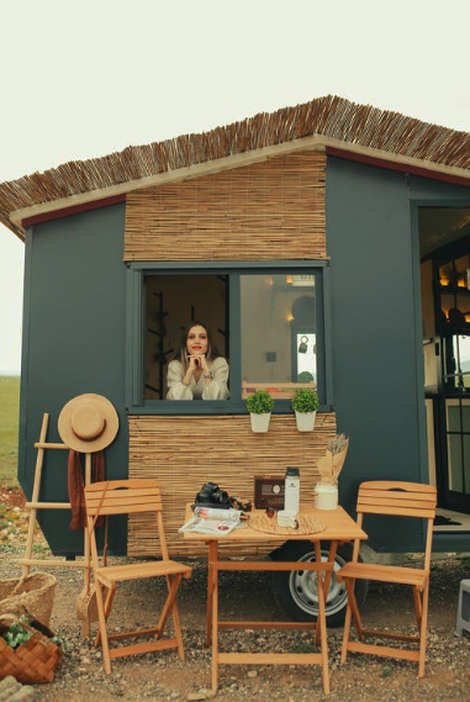 As a homeowner, it can be challenging to determine whether downsizing is right for you. However, by understanding what downsizing means and looking at the benefits, you can often make the best decision for yourself with relative ease. If you’re trying to determine whether now is the right time to downsize, here’s what you need to know, courtesy of Clark Real Estate. What Is Downsizing? According to the Cambridge Dictionary, downsizing means moving “to a smaller home, usually because your home has become too large for you or as a way of saving money.” It’s a common activity among homeowners, particularly during significant life transitions. For example, some homeowners downsize after their children head to college or otherwise move out, often because they no longer need as much space. Others decide to downsize as they prepare to retire, allowing them to simplify their lives, cut costs, modernize, and reduce home maintenance-related burdens. Exactly how your new home differs from your last one can vary. In most cases, you’ll have less square footage when you downsize and might have fewer total rooms. The Benefits of Downsizing Decluttering Reduces Stress Unless you previously embraced a minimalist lifestyle, there’s a good chance you’ve currently got some clutter. When you downsize, paring back on your belongings is typically part of the equation. Not only does it make it a great excuse to declutter, but eliminating that extra stuff can reduce stress. You won’t feel overrun by your belongings, giving you peace of mind. Plus, there are plenty of simple approaches that make downsizing easier. You could try: Less Cleaning to Manage Another one of the major downsizing benefits is less cleaning. When your home is smaller (and there’s less clutter), your cleaning needs go down. You’ll have fewer surfaces to contend with and less overall square footage, letting you tackle all of your needs in less time. Since your home won’t have as much maintenance, you’ll have more time to spend on activities you enjoy. If you’ve regularly felt pressed for time, that alone can make downsizing worthwhile. Reinventing Yourself When you downsize, there’s nothing that says you have to stay in the same neighborhood. Instead, you could set your sights on a new location, giving you a chance to reinvent yourself after you move. In many ways, a move can be a fresh start. By coupling it with downsizing, you’ll get both benefits at the same time. Smaller Energy Bills When it comes to financial benefits, downsizing your home typically shrinks your energy bills. You’ll have less square footage to heat or cool, and that alone can make a big difference. Additionally, you might have fewer light fixtures or may be able to shift to smaller appliances that run more efficiently. As a result, your energy bill could go down quite a bit without you having to change your lifestyle. Making Money from Your Home Sale If your current home is larger than your new one will be, you have a money-making opportunity. Smaller houses typically cost less than their larger counterparts. As a result, there’s a decent chance you’ll earn a bit of profit on the sale that won’t have to go to your next property. The extra cash could help you accomplish a variety of goals. You could eliminate debt, making your budget easier to manage. Handling a large purchase, tackling some renovations, or taking a vacation might also be viable options. Try a home sale proceeds calculator if you aren’t sure how much money you could make by selling. That way, you can estimate the property’s value and your potential profit, giving you a decent idea of what to expect. Protect Your New Home When you downsize your home to save money, the last thing you want to happen is having to spend a lot of money out of pocket to fix several things breaking at once. You can protect yourself from this circumstance by finding the company with the best home warranty for your home. A solid home warranty will protect you in the event of an HVAC or plumbing issue, ensuring that it gets repaired quickly. All you’ll have to pay is the trade service fee. Read testimonials online to find the best provider for you. There are a host of financial benefits to downsizing your home. If it’s time for you to downsize, get started decluttering and organizing, sell your home at a profit, and protect your new home with a warranty. Image via Pexels Suppose you've decided that this is the year to achieve your business dreams from your home because you realize all the benefits that come with doing what you do best as and when you see fit. But there's one glaringly obvious problem - your current home is too small. Here's how to make the necessary changes, so you can accommodate both.
If you're looking for a new home in the Reno/Sparks area, visit our Reno Property Management website. Check if it is allowed Before you even decide on a home where you can run your business, you'll first have to check if it is allowed. This would entail checking the rules of business zoning in your area to see if you can operate your business from your home premises. Furthermore, you may have to apply for a special license or permit depending on the type of industry you're in. So best to have these all checked out before you even resume operations so that you don't end up entangled in all sorts of red tape before you even begin. Check your budget Your budget will also have to be tailored to take into account your move, what with all the extra expenses that will be involved in moving your business and its belongings over with you. For example, you may need to take out extra insurance depending on the coverage provided by your moving company if the coverage they do provide is insufficient. Also, your budget is going to have to cover all the extra expenses associated with moving and if you're moving to a new state then the additional cost of living expenses will need to be taken into account too. Finding a property that will meet all your requirements Finding a property that is going to meet all your requirements is going to be something else to think about too. After all, it's going to have to be big enough to cater to both your business and your family. Furthermore, it may have to have additional rooms for a home office, for example, and it may also need to have ample parking space or access to ample parking space if you are going to have clients visiting every now and again. Make sure you have all the basics covered If you are planning on going full steam ahead with your business operations as soon as you're settled in, then you'll want to make sure you have all the basics covered as far as equipment and furniture goes. When thinking of choosing the right furniture for your home office, you should combine practicality with style to ensure that you are as productive as possible in your home office. Then, you'll want to think about investing in the necessary software to run your business smoothly. You will require an easy to use bookkeeping system to ensure your accounting efforts are up-to-date at all times. Here, we're referring to accounting software that allows you to store and organize your receipts adequately so that you can benefit from tax savings down the line whilst adhering to the applicable tax legislation. It should also provide you with the tools to manage your cash flow better so that you stay on top of incoming and outgoing expenses. These are just a few of the major deliberations that need to be had before you think about up and moving everything somewhere new. But it's vital that you do to ensure you have the wherewithal to not only cope but thrive during this new transition. Image via Pexels |
Clark Real Estate
305 W. Moana Ste C Reno, NV 89509 (775) 828-3355 Reno Property Management
All
|

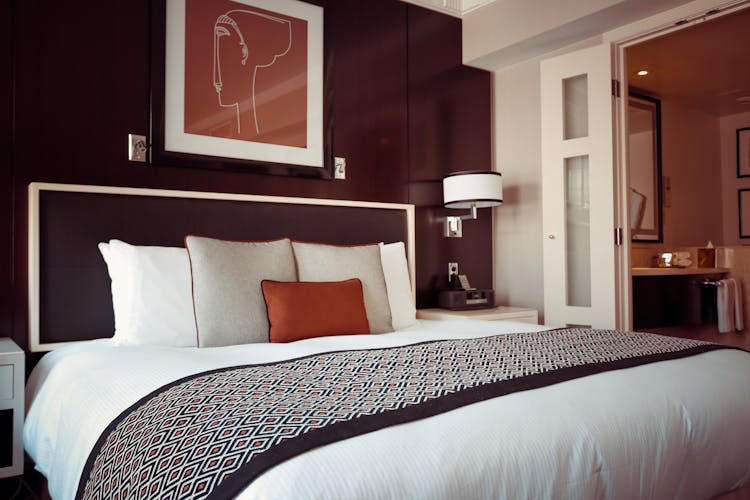

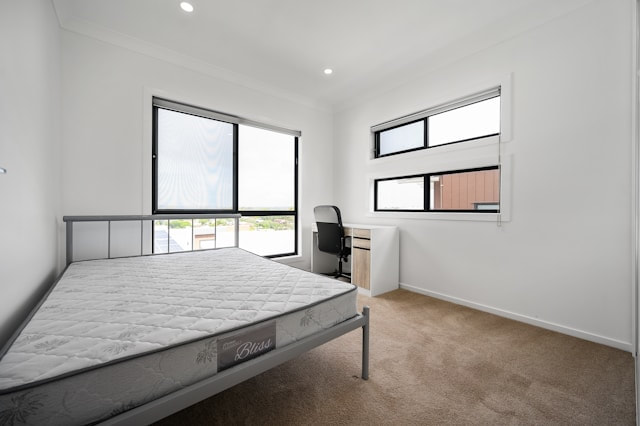
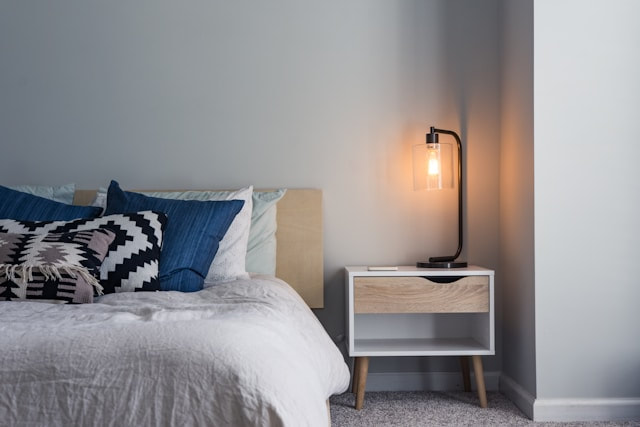




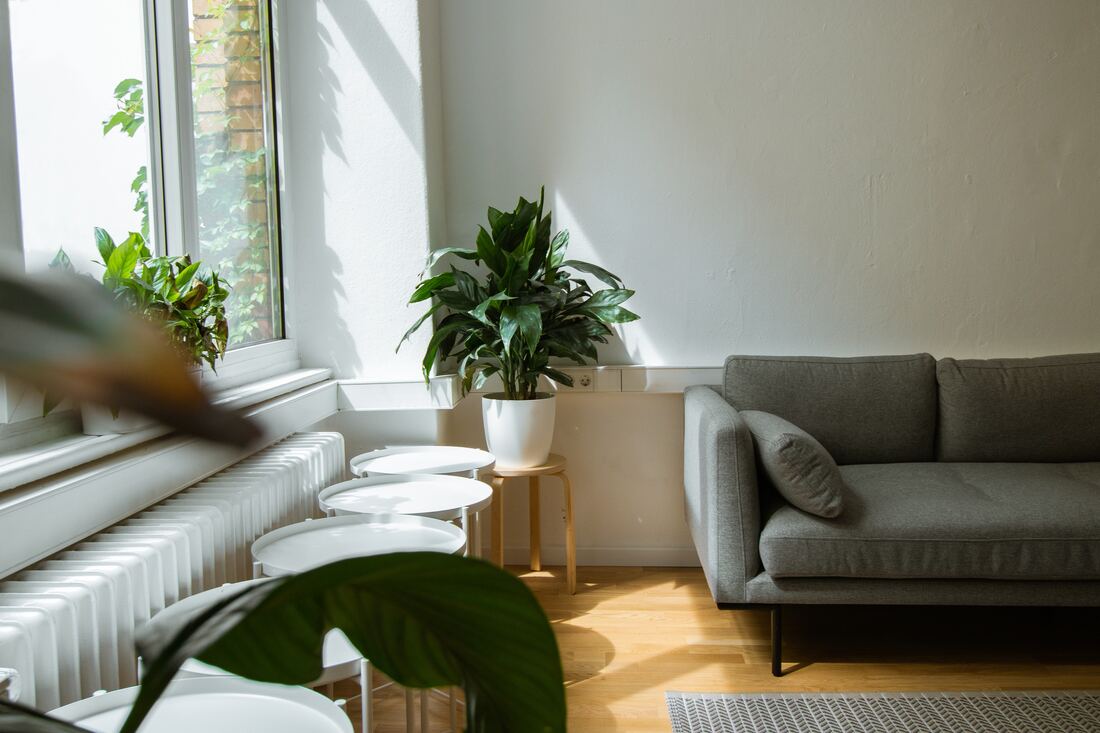




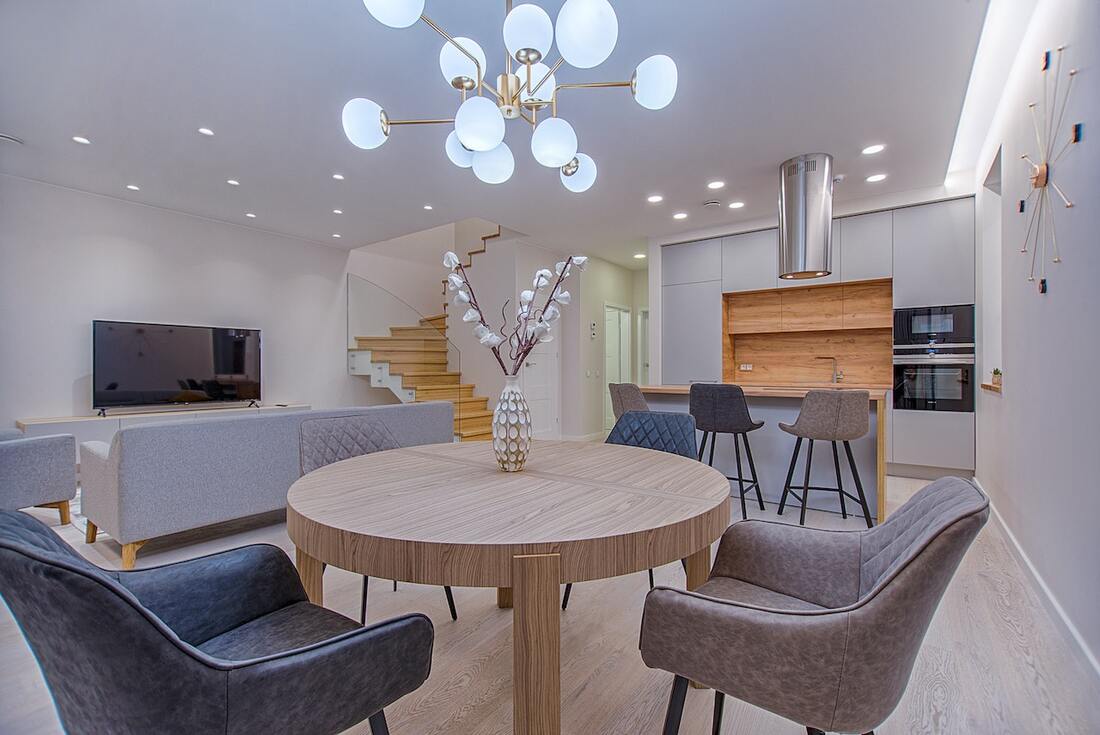
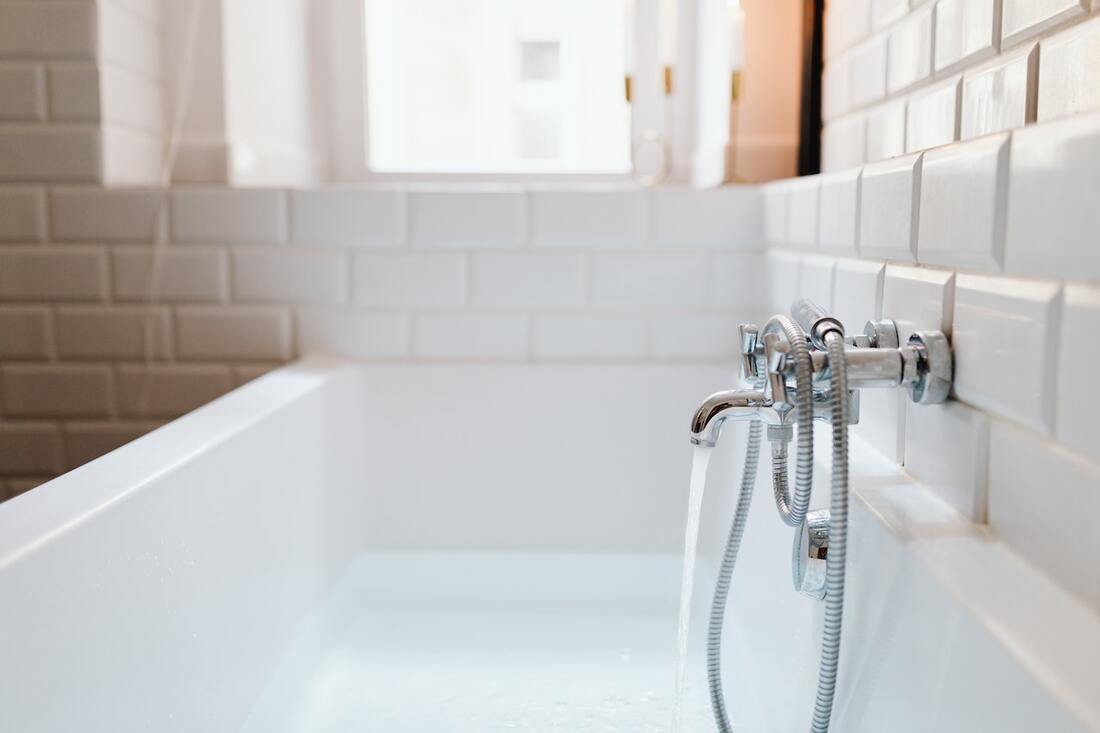


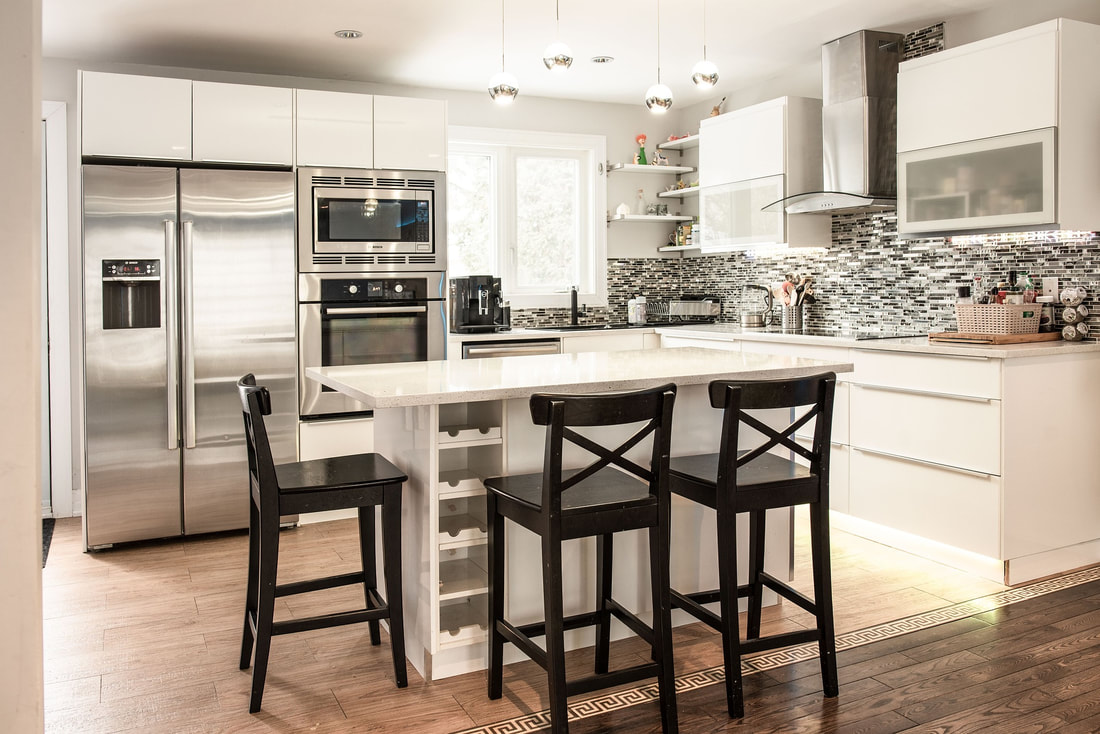







 RSS Feed
RSS Feed

